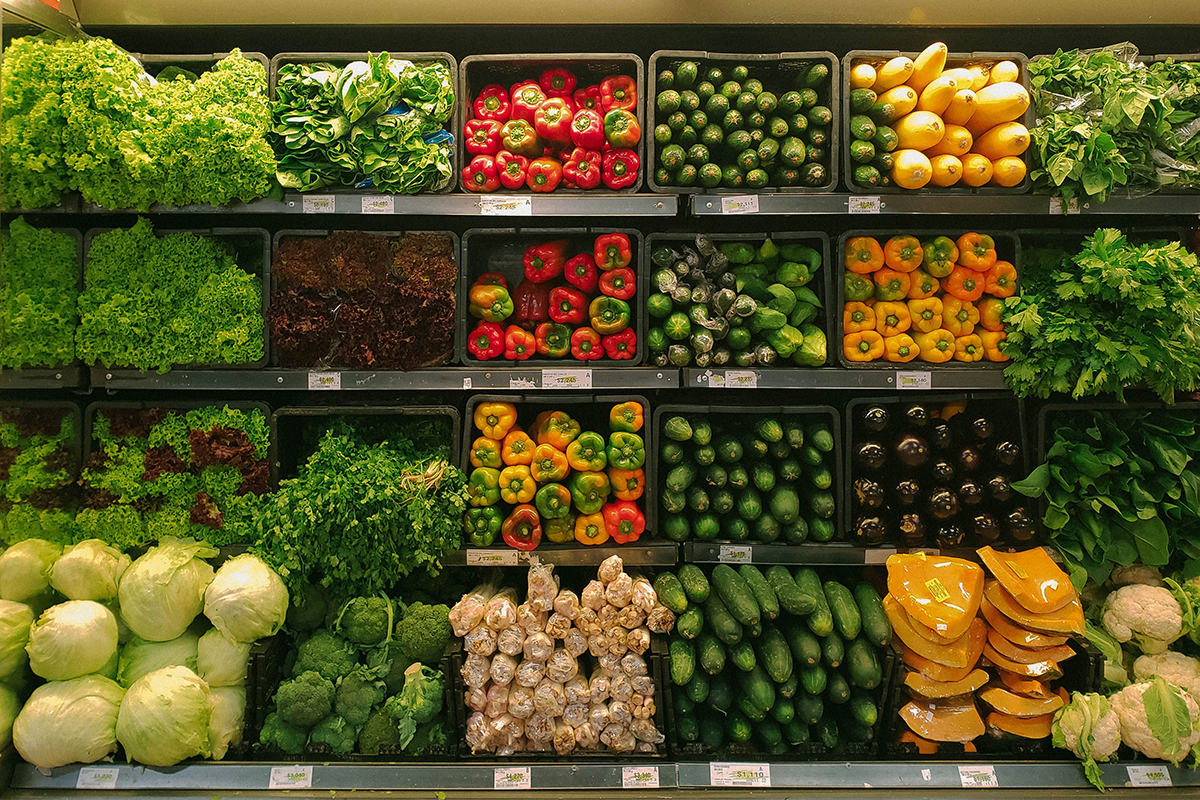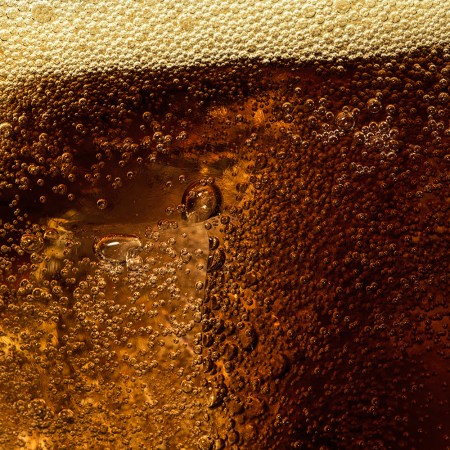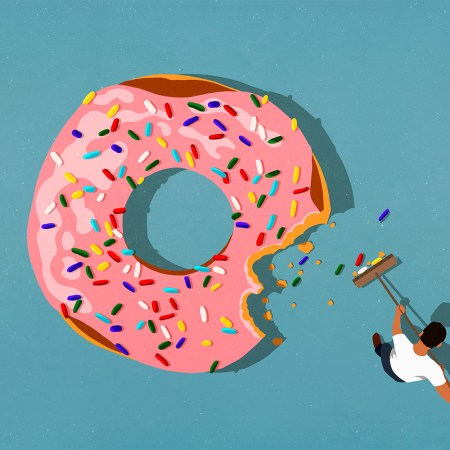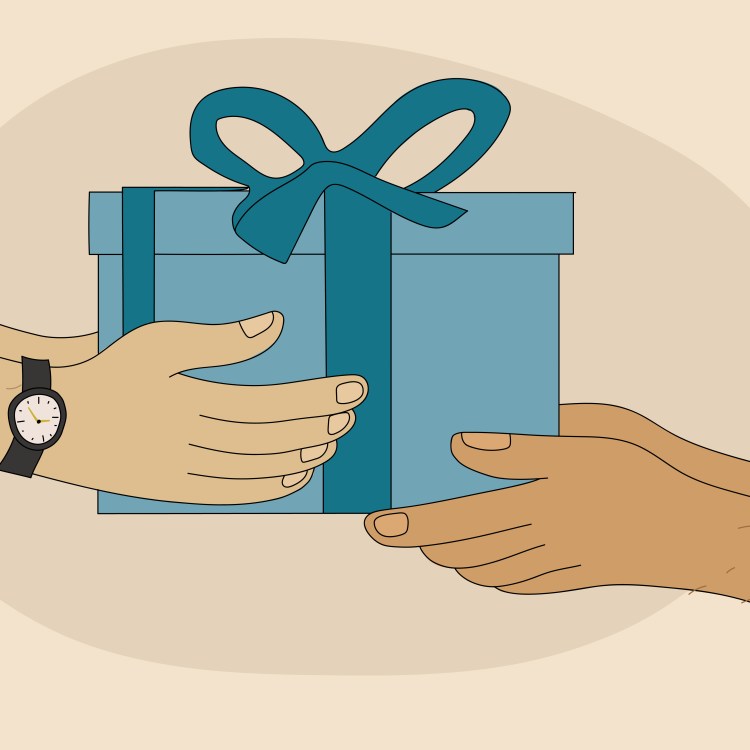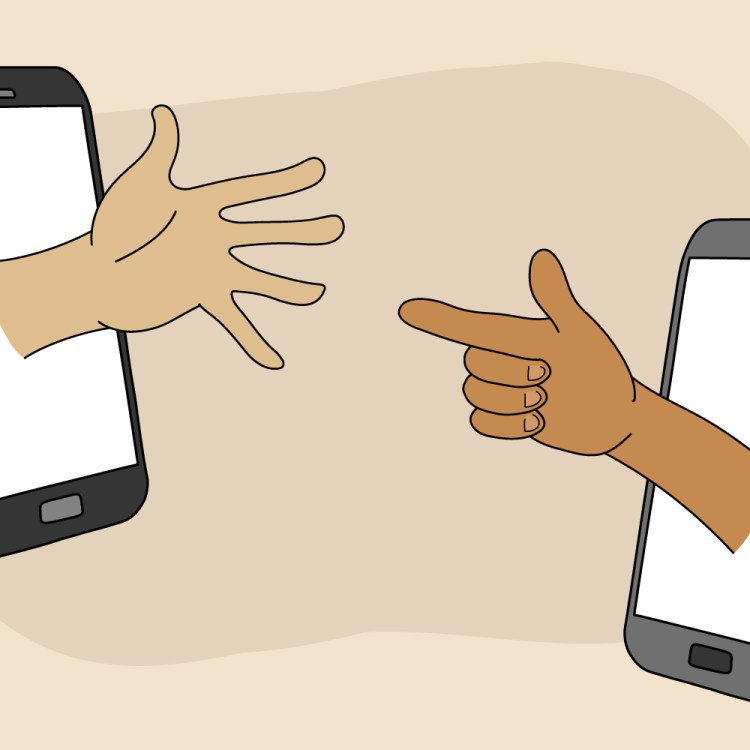When your bladder’s full, you go to the bathroom. When your knee’s in pain, you stop running. When your brain’s struggling to read another page, you put the book on the nightstand and go to sleep.
All day, everyday, we receive and honor a variety of messages from our body. They’re biological instructions, intended to arm us with the information we need to make rational decisions. Listening to them is a common-sense way to operate as a functional human being.
For some reason, though, many of us consistently ignore signals related to food and fullness. Americans maintain a complicated love-hate relationship with food, and just about every year, test out a new method for eating less of it. A fifth of Americans actively experiment with dieting, helping fuel a $250 billion global weight-loss industry.
But decades of research, as The New York Times recaps in a recent feature, has revealed that so-called chronic dieters are trapped in a self-defeating cycle. Their dieting attempts generally lead them to overeating. As people start to identify themselves as dieters, their efforts are more likely to backfire. A study by Dr. Janet Polivy and Dr. C. Peter Herman dubbed this phenomenon the “what-the-hell effect.”
Put simply, the second a self-professed dieter consumes something outside of their diet (a high-calorie milkshake, for instance), the wheels tend to come off. They’ve ruined another diet, they think to themselves, so they might as well order a burger and fries, too. Chicken nuggets wouldn’t hurt, either.
Evelyn Tribole, the author of Intuitive Eating: A Revolutionary Anti-Diet Approach, used Dr. Polivy and Dr. Herman’s research as a jumping off point for her book, which argues for an overhaul of dietary thinking. Instead of roundly classifying foods as “good” or “bad,” people should focus on how the food makes them feel — both generally, and in that moment. Same as the bladder or a knee, the body sends important biological clues as to whether it can handle a certain type of food, in a certain amount, at a certain time of day.
This philosophy does not preclude the concept that a bowl of almonds is healthier for your heart than a bowl of Frosted Flakes. But it does acknowledge that a preoccupation with avoiding Frosted Flakes can ironically lead to you eating more Frosted Flakes.
Some tips for getting started on intuitive eating this year? Number one: stop dieting. Ignore fad diets especially. Don’t let someone on TikTok who’s never met you dictate tomorrow’s lunch. Make sure to eat when you’re hungry (you know, the way you drink water when you’re thirsty). If you’re always craving sugar at a certain time of day or night, investigate why. Check in on how full you feel — before and after a meal — before taking seconds, or grabbing dessert. Feel free to season or fry a vegetable, if that’s how you’d prefer to eat it. Eating should not be a chore. And always, always, keep track of how certain food makes you feel from a physical standpoint. For instance, do you work (or work out) better after eating a salmon salad as opposed to a beef burrito? It all counts, and it’s all better than sweating over inane and impersonal “rules.” Eat intuitively and your body will pay you back in kind.
Whether you’re looking to get into shape, or just get out of a funk, The Charge has got you covered. Sign up for our new wellness newsletter today.
